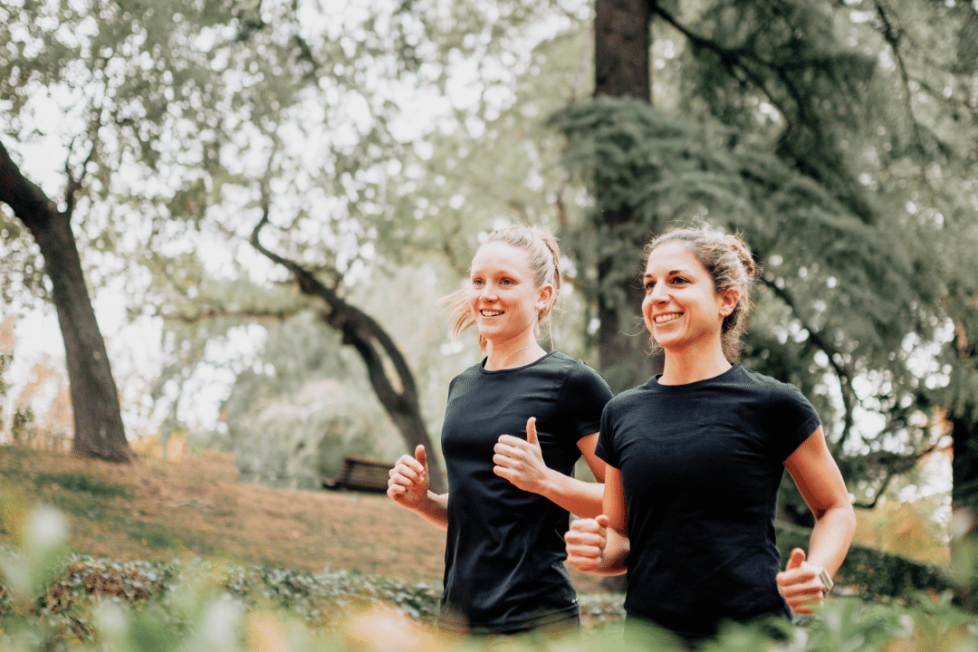What to Eat Before a Run
Why women should think about nutrition differently than men, why “women are not small men”, and why biohacking trends such as intermittent fasting can (and should) look different for women.

Why women should think about nutrition differently than men, why “women are not small men”, and why biohacking trends such as intermittent fasting can (and should) look different for women.

Dr. Stacy Sims, an expert on sex differences, nutrition, exercise—not to mention an elite athlete—recently sat down on the Whoop Podcast to chat with Kristen Holmes, VP of Whoop Performance, and Emily Capodilupo, VP of Whoop data science on why women should think about nutrition differently than men, why “women are not small men,” and why biohacking trends such as intermittent fasting can (and should) look different for women. She explains what to eat before a run based on your gender.
This article contains affiliate links. When clicked on and a purchase is made, The Klubb earns a small commission.
“Most of the stuff that we know and do—if not all of the stuff that we know and do—is based on male data.”
Dr. Stacy Sims, heard on the Whoop Podcast
Generally, you should eat a meal 3 to 4 hours before running. This is most critical for distance runners who are running for multiple hours at a time. Not every meal is created the same either. Before a long run you should be eating a meal that is high in carbohydrates and has moderate levels of protein.
Editor Note: I opt for plant protein before a big run. For me, a Sunwarrior protein shake with fruit and alternative milk (hemp, oat, almond, ect.) to go with a large bowl of oatmeal is the perfect pre-distance run meal.
“From a high level point [of view], regardless of what diet belief you might have, it comes down to fueling for the stress.” She followed that you need to fuel for whatever type of training stress you’re engaging in: “Fuel for the training sessions, recover well from the training sessions, and then you can do a little bit of play with the rest of it.”
“Exercise itself is a fasted state, so if your exercising in a fasted state, and then contributing more into a fasted state because of exercise depleting everything, then you get skyrocketing cortisol levels and a catabolic state; and if you’re not eating afterwards, you stay in this catabolic state that promotes all the negativity of a low energy availability.” (Read: fasting after a workout is not the best idea for women.)
On the pod, Dr. Sims noted that when it comes to sugar, “there’s a time and a place for it…if there’s any time in your day that you should be having sugar, it’s during exercise.” She followed that, “you still need carbohydrates to start burning fat, and a little bit is fine.”
“If you like it, then you have it, you just don’t overdo it.”
-Dr. Stacy Sims
Good sources of sugar pre- and post- workout:
Having the proper meal before a long run can make all the difference in athletic performance. Using a journal to write out your meals and running performance will help you optimize for your body’s specific needs.
Below are a few meal ideas for what to eat before a run:
This is a classic that has been enhanced. Note that Hemp Seeds are high in fiber. There are mixed reviews about having too much fiber before a long run because of how long it takes to digest.
This next-level PB&J is made on a gluten-free English muffin and topped with nut butter and jelly. Rather than peanut butter, check out other kinds of nut-butter like Walnut Butter and Pecan Butter.
